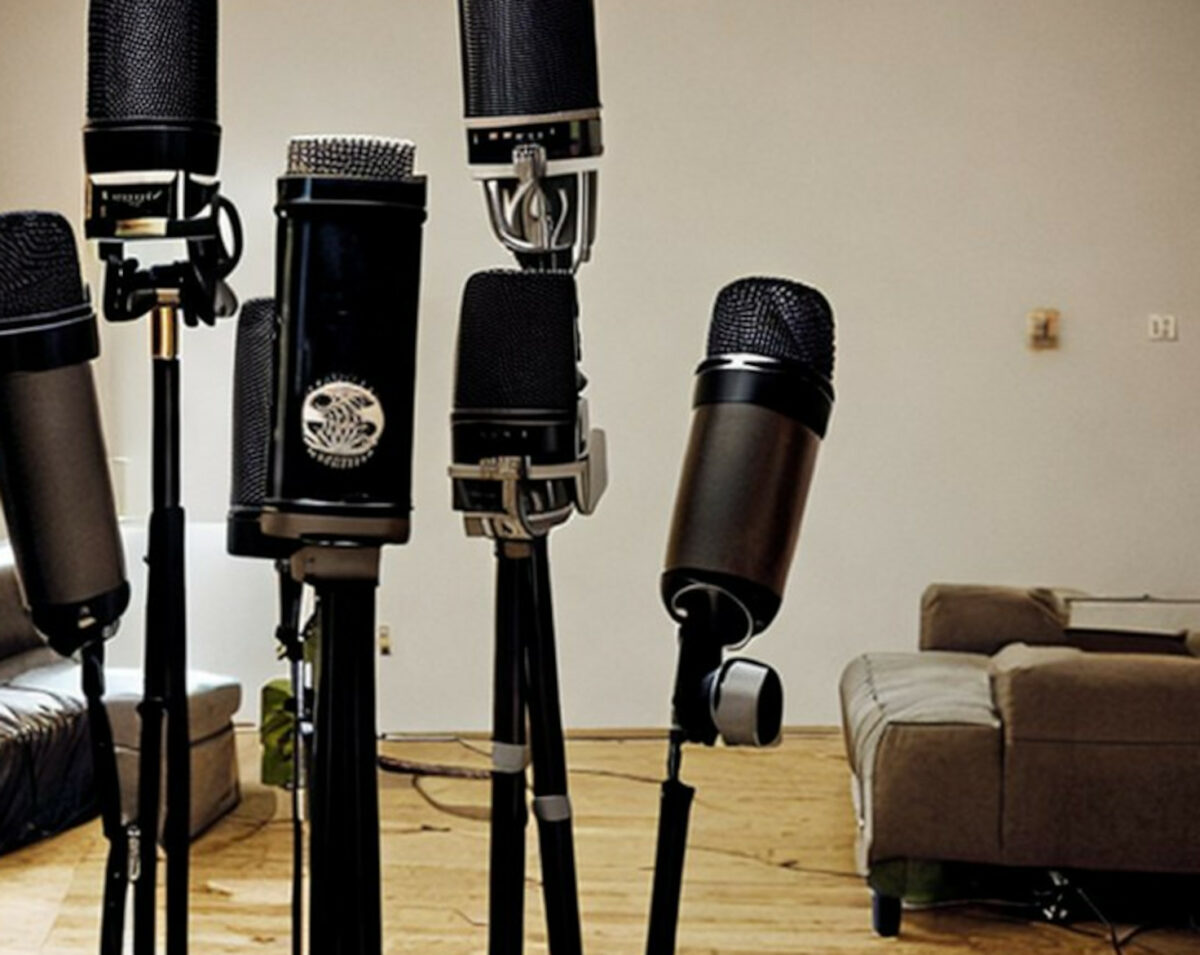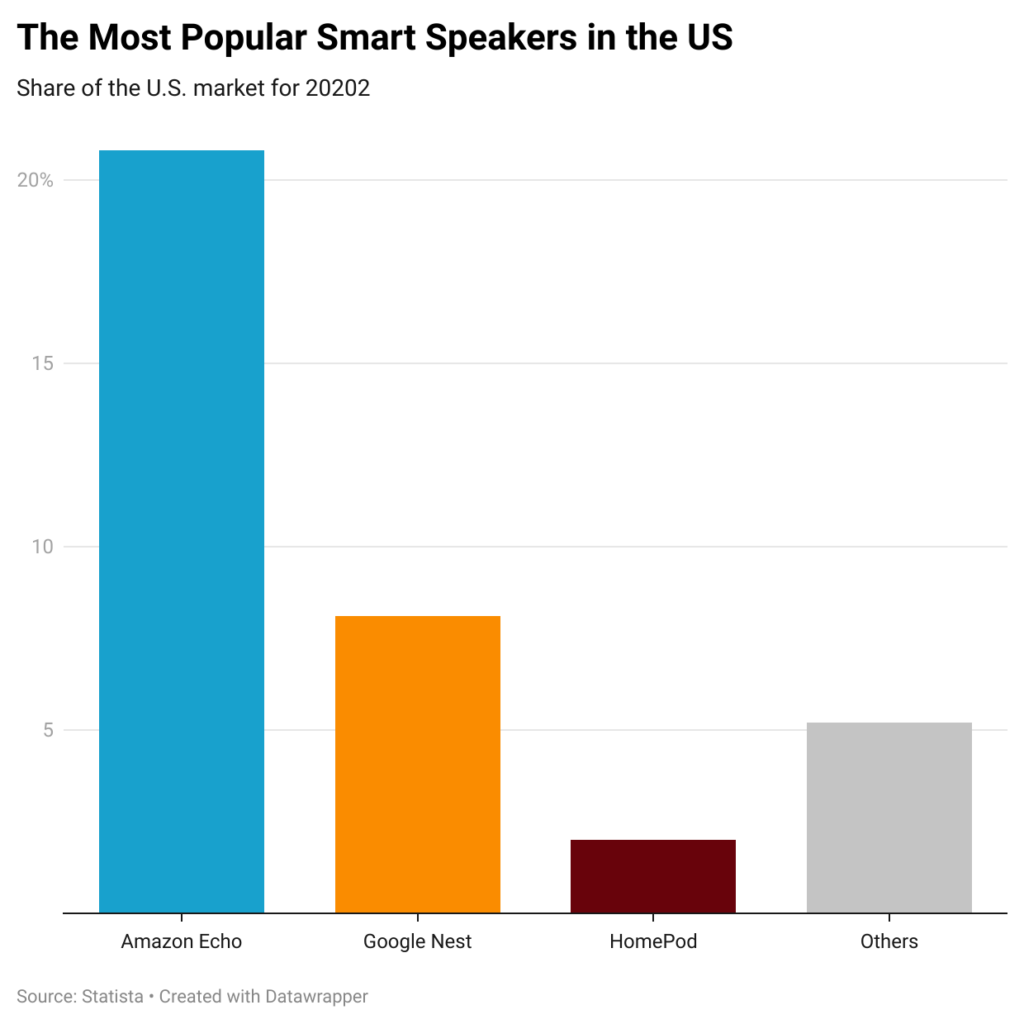Why Smart Speaker Privacy Might Be the Next Big Data Collection Scandal

It was over five years ago that we first warned about an imminent invasion of “listening, eavesdropping, spying things” in the form of so-called “smart” speakers.
The cosy term “smart” somewhat obscures a device capable to process and to respond to spoken commands, and these commands can easily be in the form of a recording. While the routine command can be send from the device’s home or just before you leave office, the cloud computing systems that control the smart speakers can easily do the same.
At their heart, then, smart speakers are surveillance devices for the companies that supply them – predominantly Amazon, Google, and Apple. The problem is that most of these devices are not profitable yet. Couple this with a context where everyone’s looking to have a healthy balance sheet… and smart speaker privacy might become a big issue really fast.
Smart Speakers: How It Started
Amazon was the first to create a mass market smart speaker, in 2014. The entry of Google in 2016 introduced some competition, but failed to dislodge Amazon from its leading position: Google sold only 400,000 units in the fourth quarter of 2016, while Amazon sold over 4.1 million systems. Things have moved on considerably since then:
[From] only 2 players in 2016 to over 43 major and local players until July 2022. However, the market is currently being dominated by only 6 players such as Amazon, Google, Baidu, Alibaba, Xiaomi, and Apple. Rest of the players in the global smart speaker market are holding less than 10% of market share. As of 2021, Amazon Sold over 40 million units of Alexa and Eco, and Google sold more than 35 million units, followed by Baidu (~22 million units), Alibaba (~19 million units), Xiaomi (9.8 million units), and Apple (~15.78 million).

In its report, SkyQuest wrote that “demand for smart speaker market is still high”, and that “major players are continuing to invest in new technologies”. That was back in August last year.
Since then, there has been an important development in the smart speaker sector. In October 2022, Google announced that Google Assistant, the voice recognition system that it uses on its own smart speaker and other hardware systems, would be less of a priority in the future.
Although it has not given any details as to why that is happening, an announcement by Amazon a month later provides some clear hints.
Smart Speakers Are Not Profitable… Yet
According to a post on Ars Technica, Amazon’s smart speakers are costing the company billions of dollars a year. That’s despite the fact that the Amazon Echo line is one of the company’s best-selling products. Apparently, the systems are sold at cost, in the hope that profits would be made in the form of the smart speaker services that people would pay for afterwards.
That hasn’t happened.
Instead, customers tend to use the system for fairly trivial purposes, like asking about the weather, or playing music. Neither of those generates any money for Amazon.
Google’s smart speakers are likely to suffer from the same lack of an obvious way to generate a steady revenue stream. That’s not for want of trying. As Search Engine Land reported in 2019, the company did start testing ads among the results provided by Google Assistant. Other approaches included:
- audio ads on YouTube Music when accessed through a smart speaker,
- revenue from transactions that were made via the system,
- charging local services a fee for being promoted on smart speakers in a given area.
None of these seem to have worked, which has probably led to the current smart speaker problems at both Google and Amazon.
However, there seems to be consumer demand for the devices, which means that they will continue to be made. Statista predicts that shipments are likely to surpass 200 million annually in 2022 or 2023, although this was before the cutbacks by Google and Amazon.
In any case, neither company is likely to abandon what is already a large market: Amazon confirmed in December last year that it will continue to build on its Alexa technology. Instead of discontinuing them, they will probably seek to introduce new business models for their smart phone products. Alongside the ideas mentioned above, there are two major approaches that could be tried, both of which would be very damaging to privacy.
Smart Speakers Could Turn to Data Collection

The crudest, but also easiest way to turn this product profitable would do away with any smart speaker privacy consumers currently enjoy. This involves allowing them to eavesdrop on conversations all the time to extract information about our habits. Purchase and search histories could then be sold to companies for market research purposes, or even for advertising on smartphones and other devices.
Although highly intrusive, this form of surveillance might be acceptable to some people in return for lower prices on the basic hardware. Those who wish to preserve their privacy might be forced to pay higher prices to ensure that the device does not constantly eavesdrop on their conversations.
An alternative, more subtle, approach to monetization would build on the new generation of AI chatbots, discussed recently here on PIA blog. Chatbot features could be offered as a paid-for premium service for smart speaker purchasers.
The astonishing ability of chatbots to engage in seemingly intelligent and even entertaining conversations with humans is likely to be highly attractive for some users. This would turn the relatively boring and limited smart speakers into something much more interactive and fun – both aspects that consumers are generally happy to pay for.
The big problem with the second business model is that the playful and sympathetic nature of chatbot software is likely to lead to people revealing highly personal details of their lives without noticing, as discussed previously. That private information would be sent as before to cloud-based systems for analysis and response, where it would provide unprecedented insights into the desires, hopes and fears of the people using them.
Adding chatbots is a natural development of today’s smart speaker systems, even without the current problems of the sector spurring manufacturers to investigate new ways to use the devices. Expect these speakers to get even “smarter” soon, and thus even more problematic for privacy.
Featured image created with Stable Diffusion.
